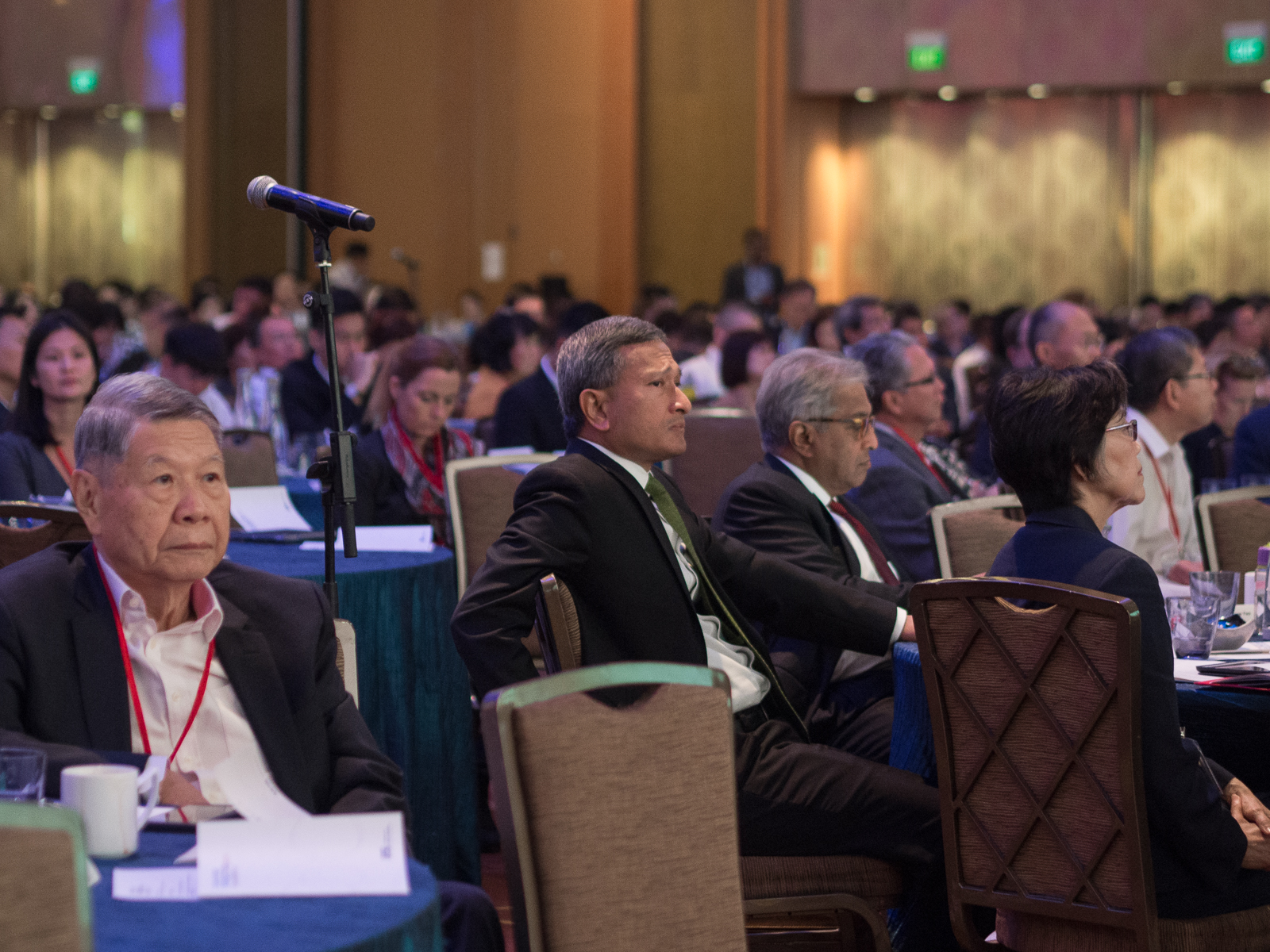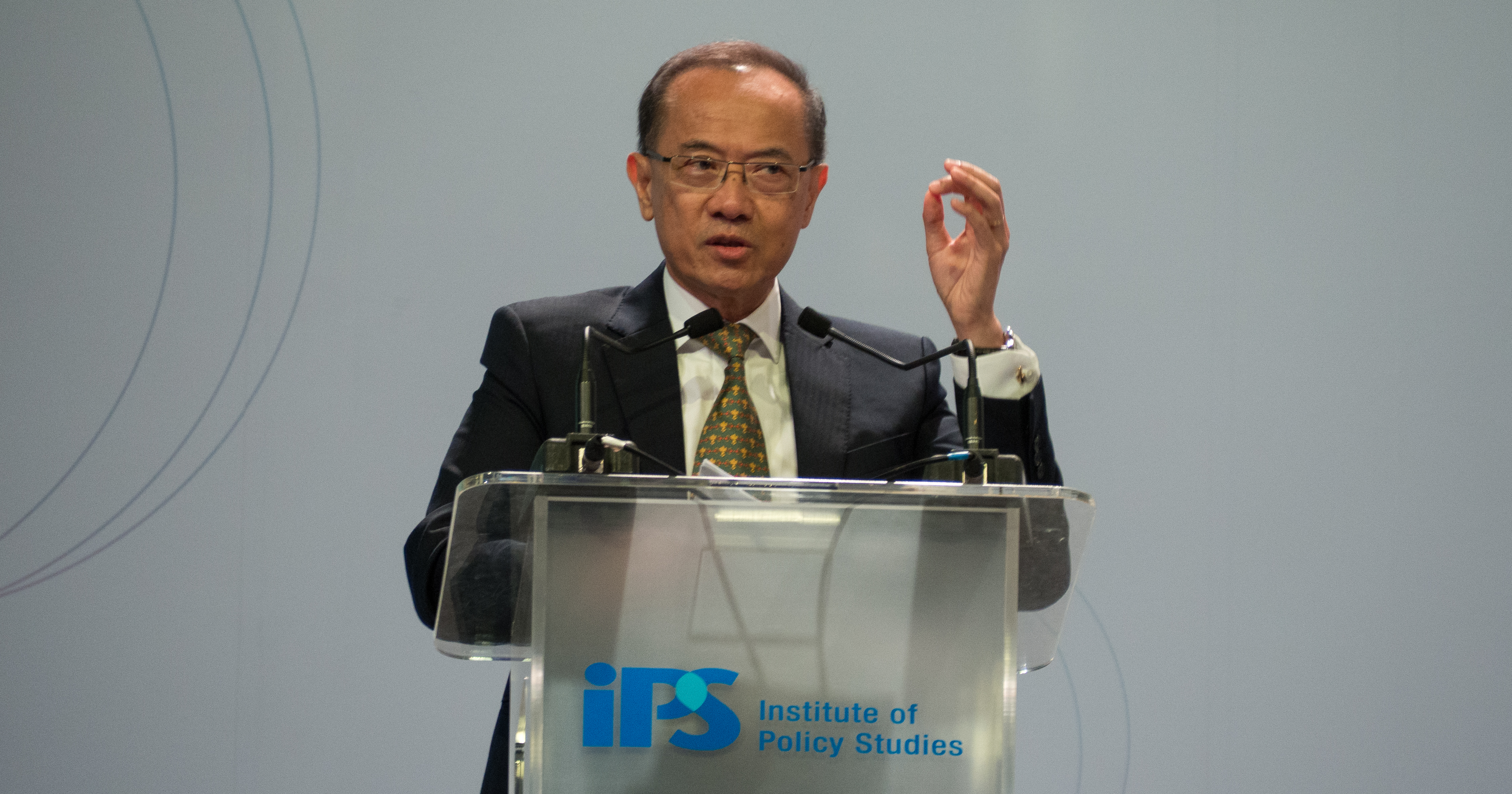Former Foreign Minister George Yeo laid out a roadmap for how Singapore could navigate the conflict between rival superpowers in the 21st century.
Speaking at Singapore Perspectives 2019, organised by the Institute of Policy Studies, Yeo acknowledged the conflict between the U.S. and China is here to stay for the foreseeable future.
While China's rise on the world stage is not without precedent, the U.S. tends to see China as a rising power to rival its own, worrying "what does the rising China portend."
Yeo said it is the single most important relationship on the world stage today, adding "If it is bungled, all bets are off."
More trade, not less
Yeo addressed the aggressive turn that U.S.-China relations had taken following the election of President Donald Trump and his "America First" policy.
He remarked that the U.S. had weakened its support of international institutions like the WTO and the UN under President Trump, now preferring to deal with other countries on a bilateral basis.
However, Yeo pointed out that this is only advantageous to the U.S. in the short term because of its larger economy.
If China follows suit in the 21st century, this would not be to the benefit of "China, the U.S., nor the world."
Yeo mentioned the Trans Pacific Partnership (TPP), supported by former U.S. President Barack Obama as a way to contain China.
Yeo believed that was a mistaken approach. However, Trump has pulled the U.S. out of the TPP entirely.
Instead, Yeo favoured more engagement with the TPP, not less, pointing out that the agreement is important for safeguarding intellectual property.
He hoped that Singapore, Japan and other countries could persuade China to join the TPP, which would incentivise the U.S. to return. Said Yeo:
"We must do this artfully, coordinate the negotiations so that they join at the same time. Whatever China is prepared to give to the U.S., we say 'give it to the TPP.'
If the TPP includes China and the US, the WTO will have to follow in its wake. And we will have a safer world."
War is not inevitable
Yeo does not believe that war is inevitable, because it is not in China's nature to be a "missionary power".
However, tensions will still exist. Singapore will therefore be stuck in the middle.
Yeo said that those who lived and work in the "intersection" between the two powers should play their part to help bridge these differences.
 Foreign Minister Vivian Balakrishnan was in attendance for the session. Photo by Andrew Wong.
Foreign Minister Vivian Balakrishnan was in attendance for the session. Photo by Andrew Wong.
ASEAN's role
But Singapore is not alone in this effort.
Yeo pointed out that every country in the world is adjusting to China's rise.
In ASEAN, China has already become the number one trading partner of every member.
"ASEAN gives us a buffer," said Yeo, adding that a strong ASEAN provides its members shelter from the "cold winds" of superpower rivalry.
Singapore's cultural strength
In addition to ASEAN's support, Yeo highlighted Singapore's own rise as a city-state, pointing to our cultural diversity as our source of strength.
Due to our "huge cultural genome", Singapore quickly formed connections not just to the region but to the world at large.
And it is due to our complexity that Singapore has become more adaptable, able to adjust to new situations and environments.
Yeo said Singapore's history has shown it has always been able to reinvent itself, even in the face of global upheaval.
"It is because of our genome that we have this resilience and this ability to adapt," he said.
(Editor's note: Story updated at 11:30 am)
Top image by Andrew Wong.
If you like what you read, follow us on Facebook, Instagram, Twitter and Telegram to get the latest updates.
